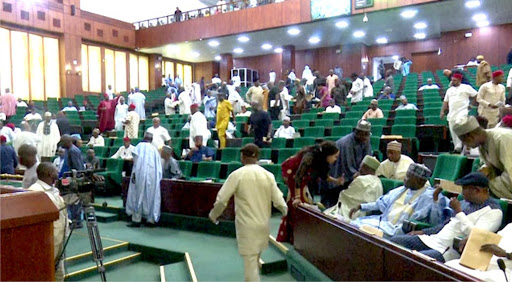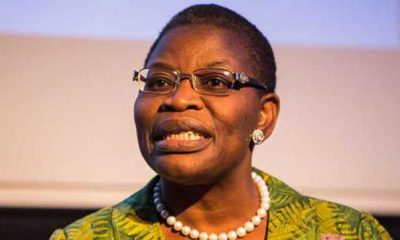Nigeria News
Rowdy Budget Session Spurs Push To Revamp Police Funding In Nigeria

A heated budget defense session with Inspector General of Police (IGP), Kayode Egbetokun, has reignited calls within the National Assembly to reform the funding framework for the Nigeria Police Force.
The session saw lawmakers condemning the envelope budgeting system as inadequate for meeting the police’s operational and security demands.
Federal lawmakers expressed concerns about insufficient funding, which they believe undermines the police’s ability to effectively carry out its duties.
During the contentious 2025 budget defense session, IGP Kayode Egbetokun emphasized that inadequate funding severely limits the police’s operational planning and service efficiency.
However, the session took a dramatic turn when Deputy Chief Whip of the Senate, Senator Peter Onyekachi Nwebonyi, raised an objection.
Nwebonyi claimed that the budget document the IGP was reading differed from the copy provided to committee members.
“We are here to serve Nigerians, and Nigerians should see us as a very serious institution. We are not against the presentation of the IGP but I as a senator should have what the IGP is reading. At the moment, what the IGP is reading is different from what I have with me,” Nwebonyi insisted.
Chairman of the committee, Senator Abdulhamid Ahmed, explained that the leadership had agreed to let the IGP present an abridged version of his submission.
“It is our decision within the committee leadership to allow the IG to summarise his presentation,” he said.
Despite this explanation, Nwebonyi demanded that all members receive the same version of the document being presented.
When the matter was put to a vote, the majority of committee members supported the IGP continuing with his abridged presentation.
Dissatisfied, Nwebonyi stormed out of the session, followed by other members shouting, “Leave, leave.”
Chairperson of ICT in the House of Representatives, Hon. Stanley Adedeji, later argued for a more flexible budgeting approach.
He emphasised that this change would enable the police to address national security challenges more effectively and enhance communication infrastructure.












